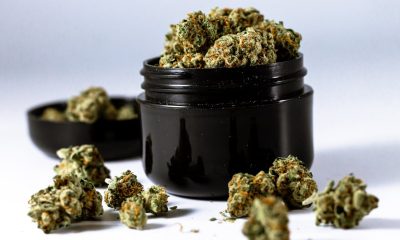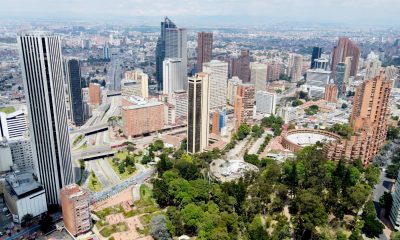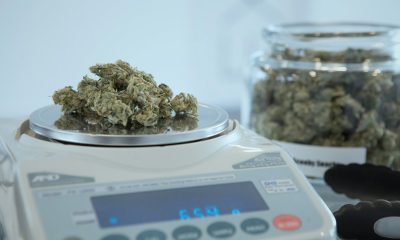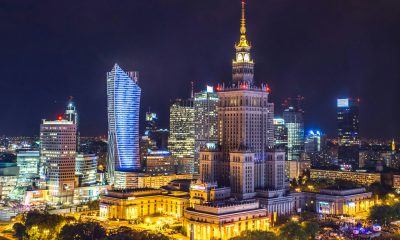Cannabis
Brazil could become a global leader in the medical cannabis sector
Anvisa authorized the registration and production of medical cannabis in Brazil. Anyone with a prescription will be able to buy medical cannabis in pharmacies and drugstores. The subject has been simmering already for some time. Anvisa has also simplified the rules for patients to continue importing the medical cannabis products prescribed by doctors to avoid shortages.

On March, 10th, the regulation that allows medical cannabis manufacture and trade came into force. An article published by José Bacellar, entitled “Brazil can lead the production of medical cannabis in the world” drew the public’s attention. José Bacellar is the founder and president of Verdemed, a medical cannabis company operating in Latin America.
Hemp.im is a mobile application that collects the latest happenings on medical and therapeutic cannabis in the world. Read the best cannabis news and lifestyle information with our mobile application, and find medical cannabis studies, legalization updates, and other compelling cannabis content.
Brazil to join the group of 47 countries that allow medical cannabis use
Brazil is going to join the group of 47 countries – which include Germany, Canada, Chile, Colombia, the United States, and Portugal – that approve the prescription and use of medical cannabis.
The RDC 357 of 2019, from Anvisa, which created the category of drugs based on cannabis derivatives, came into force on Monday, March, 9th. The RDC defined the rules that will allow Brazilian pharmaceutical companies to import or produce these medicines in Brazil, including regulating the distribution and sale of them in pharmacies and drugstores.
The rules for importing medical cannabis were simplified
Anvisa has also simplified the rules for patients to continue importing directly the medical cannabis products prescribed by doctors, acting to avoid shortages, until the new products will reach the market. The country will certainly have, in the second half of 2020, medicines based on cannabis derivatives properly registered by Anvisa, available to doctors and patients and sold in pharmacies like prescription medicines.
The National Congress has before it a historic opportunity to enact a new law, creating a true Regulatory Framework for Medical Cannabis in Brazil. Since October, 9th, 2019, a Special Commission of the House of Representatives has been in full swing to analyze the PL 399/2015 of Representative Fábio Mitidieri (PSD-SE), which provides on the regulation of medical cannabis. The President of the Commission, Mr. Paulo Teixeira (PT-SP), and the rapporteur, Mr. Luciano Ducci (PSB-PR), visited Colombia and Uruguay to learn the impact of the legislation of neighboring countries.
Suggestions from Anvisa
The Commission received suggestions from various government agencies such as Anvisa, Embrapa, the Ministries of Agronomy, Justice, and Health, among others. Patient associations, pharmaceutical companies, class entities, prescribing physicians, and several specialists on medical cannabis have actively participated in the debate, including through dozens of public hearings.
The Brazilian parliament and the nation are not discussing whether there will be the release of illicit drugs or changes in criminal treatment applied to the illegal production of cannabis in the country. The cunning and purposeful mixture of discussing the planting of medical cannabis and the release of illicit drugs aims to confuse public opinion and disrupt the debates and legislative process.
The cultivation of medical cannabis in Brazil and its domestic production extracts are going to lower the manufacturing costs of the products. The production of raw materials in Brazil will reduce drug prices, increasing the population’s access to medical cannabis derivatives, in addition to allowing SUS to save millions of reais every year.
The economic impact of cannabis cultivation
Once regulated, cannabis cultivation on a commercial scale will have a strong economic impact and will allow Brazil to enter the global market for cannabis products with both feet firmly on the ground. The Regulatory Framework for Medical Cannabis, in order to further activate the economy, should contemplate the positive and standardized inclusion of industries specialized in the production of plant extracts and other plant derivatives, including many classes of welfare, consumption and health products, as the US does, for example.
Brazil can and should produce the raw materials and derivatives of medical cannabis for export and for sale on the domestic market. The global medical cannabis industry will exceed $100 billion annually over the next decade. Brazil, which has one of the most competitive agro-industries in the world, has every chance of becoming the leading producer of this great new commodity of the 21st century.
__
(Featured image by Agustin Diaz via Unsplash)
DISCLAIMER: This article was written by a third party contributor and does not reflect the opinion of Born2Invest, its management, staff or its associates. Please review our disclaimer for more information.
This article may include forward-looking statements. These forward-looking statements generally are identified by the words “believe,” “project,” “estimate,” “become,” “plan,” “will,” and similar expressions. These forward-looking statements involve known and unknown risks as well as uncertainties, including those discussed in the following cautionary statements and elsewhere in this article and on this site. Although the Company may believe that its expectations are based on reasonable assumptions, the actual results that the Company may achieve may differ materially from any forward-looking statements, which reflect the opinions of the management of the Company only as of the date hereof. Additionally, please make sure to read these important disclosures.
First published in SECHAT, a third-party contributor translated and adapted the article from the original. In case of discrepancy, the original will prevail.
Although we made reasonable efforts to provide accurate translations, some parts may be incorrect. Born2Invest assumes no responsibility for errors, omissions or ambiguities in the translations provided on this website. Any person or entity relying on translated content does so at their own risk. Born2Invest is not responsible for losses caused by such reliance on the accuracy or reliability of translated information. If you wish to report an error or inaccuracy in the translation, we encourage you to contact us.

-
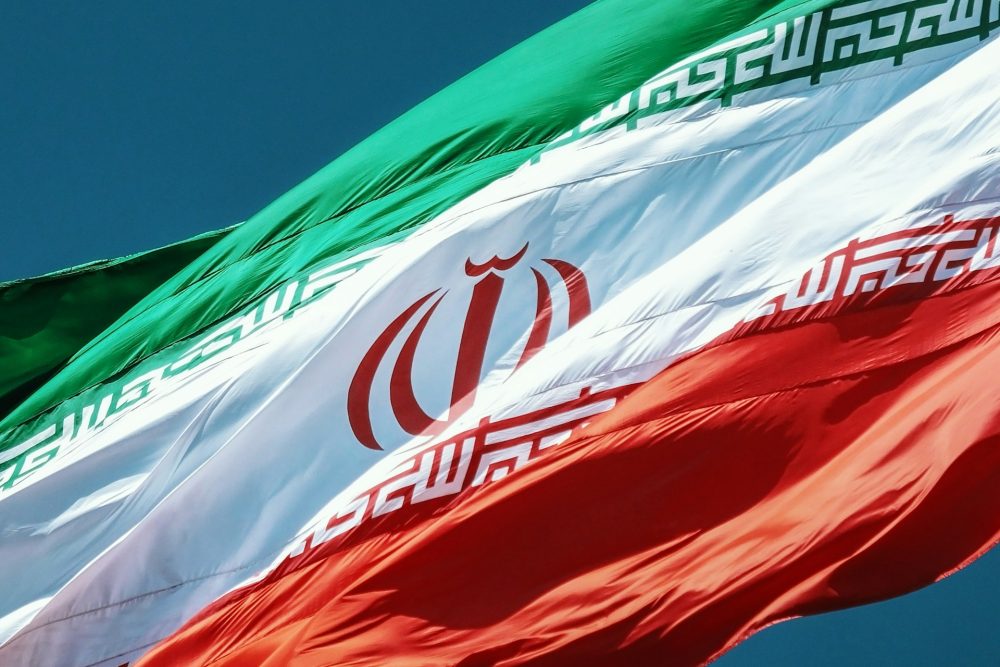
 Markets2 weeks ago
Markets2 weeks agoShockwaves of War: U.S. Strikes Iran, Markets Teeter, Global Risks Rise
-

 Crypto1 week ago
Crypto1 week agoCoinbase Surges: Bernstein Targets $510 as COIN Hits Highest Price Since IPO
-

 Markets3 days ago
Markets3 days agoCoffee Prices Decline Amid Rising Supply and Mixed Harvest Outlooks
-

 Crypto2 weeks ago
Crypto2 weeks agoBitcoin Recovers After U.S. Strikes Iran, While Altcoins Face Sharp Losses
